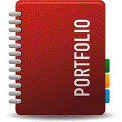Faculty-led Inquiry into Reflective and Scholarly Teaching (FIRST)

UNL Faculty Course Portfolios
Date of this Version
Spring 1-5-2024
Document Type
Portfolio
Abstract
This evaluation of teaching examined the Fall 2023 semester of ENVE 210: Fundamentals of Environmental Engineering. The purpose of this study was to change the format of the class from a lecture-based to a flipped classroom approach through the use of pre-lectures, in-class problem sets and group work activities. In addition, this study aimed to better adapt chemical engineering textbook content related to mass and energy balances to environmental engineering by creating new environmental engineering specific and sustainable development problems. The study learning outcomes proved difficult to implement and evaluate in a hybrid distance learning class and will require future iteration and data collection alignment to be achieved. Nevertheless, the learning outcome of improving student abilities to generate flow diagrams and set up mass and energy balance problems was achieved. Eighteen environmental engineering problems and 16 problems related to the United Nations Sustainable Development Goals were implemented and generated engaged student interest in the concepts presented in this fundamental sophomore-level course. Overall, well-defined, simple learning outcomes such as teaching students to draw flow diagrams were easy to implement and evaluate, whereas, broader learning outcomes such as teaching flexible problem solving skills require more iteration, with a particular emphasis on activity selection in a distance learning environment.
Included in
Curriculum and Instruction Commons, Environmental Engineering Commons, Higher Education Commons, Higher Education and Teaching Commons


Comments
Copyright 2024, Kaycie Lane. Used by permission